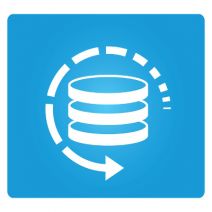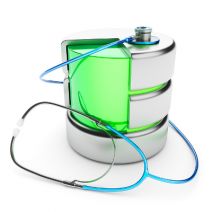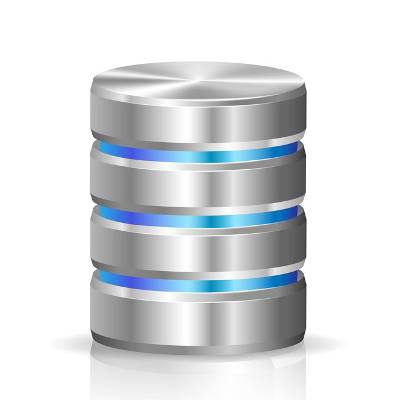Have any question?
Call (409) 861-4450
Call (409) 861-4450
It is no secret that security is an absolutely crucial part of computing in the modern era. Data can very fairly be called the most valuable currency today, which means it needs to be protected. One way to do this is through the use of encryption keys. In this Tech Term, we’ll go over how these keys can protect your data, and how they do so.
Data backup has become an essential piece of the modern business’ computing infrastructure but the act of protecting data from being lost is centuries old. Before there was recorded civilization, there were humans writing on the cave walls and carving notches into bone to aid counting and other primitive mathematics. Today, we take a look at the history of backing up data, and how it has brought us to where we are now.
There’s no getting around it: technology has spoiled us. We have had access to 4G mobile data speeds since 2009, and we’re already clamoring for the next thing. While 5G has been in development for some time now, it will likely be quite a while before it is available for common use. Here, we examine why 5G is likely going to take at least a few more years to arrive.
Running a business sometimes requires attention to very minute details, and some things must be measured in order to achieve optimal efficiency. You’ve likely heard the terms bits and bytes used regarding data storage or transfer, but do you know what the difference is between them? Today’s tech term is dedicated to this explanation.
When you delete a file off your PC, or your hard drive becomes corrupted, you just take for granted that the data is gone in perpetuity. That isn’t the case at all, and it can present problems for businesses and individuals alike. The thing is that it’s deleted, it’s gone, it ceases to exist, because you deleted it with your own hands.
Managing your businesses technology is important because your operations rely heavily on efficient access to information. One advantage that secure and reliable IT provides is the ability to remain competitive, as the slightest advantage could mean a world of difference in your given market. One new IT trend is the analysis of big data. If it is leveraged properly, you could help your business get the leg up on local competition.
Big data is a trend that’s gaining traction in the business environment. By taking a close look at the data that you collect, and identifying trends, you can potentially predict how your business can perform, and how your clients will respond to your products or services. Yet, there are two major questions that you need to ask: how are you going to use this data, and is the data that you’ve collected specifically to achieve that goal?
 Data storage is such an important part of today’s business environment, but when was the last time you took the time to consider technologies that came before? Technology that exists today couldn’t possibly have existed 50, or even 20 years ago. How have the leaps and bounds made in the tech industry affected the status of data storage, and what does this trend mean for small and medium-sized businesses?
Data storage is such an important part of today’s business environment, but when was the last time you took the time to consider technologies that came before? Technology that exists today couldn’t possibly have existed 50, or even 20 years ago. How have the leaps and bounds made in the tech industry affected the status of data storage, and what does this trend mean for small and medium-sized businesses?
 Your business requires specific data to keep operations moving on a daily basis. However, for all of the data that you use, there’s information that you have stored away that never sees the light of day. This “dark data,” could be putting your business at risk, especially if auditing your current data storage usage isn’t a top priority. If you don’t keep track of your dark data, you could be facing much larger problems than unnecessary storage costs.
Your business requires specific data to keep operations moving on a daily basis. However, for all of the data that you use, there’s information that you have stored away that never sees the light of day. This “dark data,” could be putting your business at risk, especially if auditing your current data storage usage isn’t a top priority. If you don’t keep track of your dark data, you could be facing much larger problems than unnecessary storage costs.
 As more data systems develop the need for structured data storage, the development of fast and secure solutions have become essential to the viability of storing and retrieving data. Scientists have been looking at the field of optoelectronics to develop constructs where an enormous amount of data can be stored for exorbitant amounts of time.
As more data systems develop the need for structured data storage, the development of fast and secure solutions have become essential to the viability of storing and retrieving data. Scientists have been looking at the field of optoelectronics to develop constructs where an enormous amount of data can be stored for exorbitant amounts of time.
 Data backup, regardless of its form, is a critical component of any modern IT infrastructure. If you’re not using data backup or disaster recovery, your business could be risking crippling data loss. Even if your infrastructure is protected from typical threats like viruses and malware, these security solutions aren’t going to prevent a devastating hardware failure.
Data backup, regardless of its form, is a critical component of any modern IT infrastructure. If you’re not using data backup or disaster recovery, your business could be risking crippling data loss. Even if your infrastructure is protected from typical threats like viruses and malware, these security solutions aren’t going to prevent a devastating hardware failure.
 The incorporation of mobile devices into day-to-day life has changed the culture significantly. In fact, when Apple introduced “iPhone” less than a decade ago, Steve Jobs famously said, “It’s like your life in your pocket.” Now, over eight years on from the launch of the first iPhone, it’s hard to remember what life was like before you had a full-function information system in the palm of your hand. We’ve come to rely heavily on these devices, driving mobile profits up and creating a market that didn’t have any substance only a short time ago.
The incorporation of mobile devices into day-to-day life has changed the culture significantly. In fact, when Apple introduced “iPhone” less than a decade ago, Steve Jobs famously said, “It’s like your life in your pocket.” Now, over eight years on from the launch of the first iPhone, it’s hard to remember what life was like before you had a full-function information system in the palm of your hand. We’ve come to rely heavily on these devices, driving mobile profits up and creating a market that didn’t have any substance only a short time ago.
 How much thought have you honestly put into your business’s data recovery procedure? It’s likely that you, like many other businesses out there, are taking a minimalist approach with both your data backup and disaster recovery. It’s not that you aren’t aware that they’re a good thing; you might just feel that you don’t need it because you feel hackers have no reason to compromise your data. Unfortunately, that’s what hackers are counting on: complacency.
How much thought have you honestly put into your business’s data recovery procedure? It’s likely that you, like many other businesses out there, are taking a minimalist approach with both your data backup and disaster recovery. It’s not that you aren’t aware that they’re a good thing; you might just feel that you don’t need it because you feel hackers have no reason to compromise your data. Unfortunately, that’s what hackers are counting on: complacency.
Would Your Data Survive a Disaster?
If the answer to this question is no, or I don’t know, or maybe you should read on.
 It's been said that a company's data is its most important resource. If this is true, then is it possible to assign a monetary value to your files? If you attempted to do so, you may come to the conclusion that your company's data is more valuable than anything else in your business, maybe even your own job!
It's been said that a company's data is its most important resource. If this is true, then is it possible to assign a monetary value to your files? If you attempted to do so, you may come to the conclusion that your company's data is more valuable than anything else in your business, maybe even your own job!
 It's good to backup your data, but can you have too much of a good thing? While this may be the case for several enjoyable activities like partying and buffets, this isn't the case with data backup. In fact, the more layers of data backup you have, the more secure you will be. How good is your data backup solution?
It's good to backup your data, but can you have too much of a good thing? While this may be the case for several enjoyable activities like partying and buffets, this isn't the case with data backup. In fact, the more layers of data backup you have, the more secure you will be. How good is your data backup solution?
 Big changes are happening in the world of technology, and it's important that your business stays on top of these changes in order to stay competitive. By taking advantage of the latest trends, you will be provided with solutions designed to maximize profits. Here are five of the latest trends you need to watch for in 2014.
Big changes are happening in the world of technology, and it's important that your business stays on top of these changes in order to stay competitive. By taking advantage of the latest trends, you will be provided with solutions designed to maximize profits. Here are five of the latest trends you need to watch for in 2014.
Get the Knowledge You Need to Make IT Decisions
Technology is constantly evolving, and keeping up can feel overwhelming. Whether you want to understand cybersecurity threats, explore automation, or learn how regulations like PCI DSS impact your business, we’ve made it easy to access clear, straightforward insights on key IT topics.
Learn more about what NetWorthy Systems can do for your business.
NetWorthy Systems
701 W. Division Ave Suite 100
Orange, Texas 77630